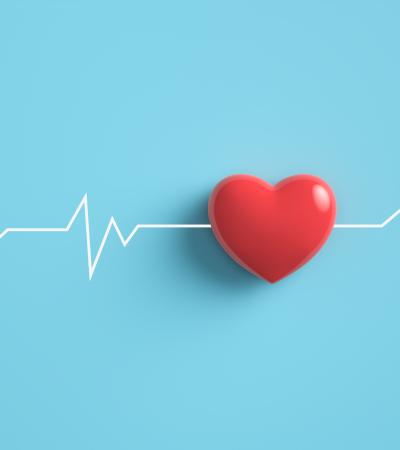Health care systems and hospitals can be the best partners you can have for health programming. Public libraries in the U.S. have worked with hospitals to offer everything from bike safety programs to healthy cooking classes to fun, engaging hand hygiene games.
How do I find a health care partner?

Where should you go to start identifying your new health care partner? First, see what health care systems and hospitals are in your community. Resources like HealthCare.Gov’s Find a Provider or WebMD’s Hospital Directory are great starting points.
After identifying health care systems and hospitals in your area, you want to identify a specific partner. Hospitals can be complex organizations. Find a staff directory and look for units with titles like “community health,” “marketing and outreach” or “medical library.” Individuals in these units make great partners for health programming.
Finally, before reaching out don’t forget to see if they already offer health programs in your community (see below). When you pick up the phone (or send the first email) you want to be as informed as you can be about what the hospital already does out in the community. In any case, after that first conversation, and the first program, keep the ball rolling. You’ve just made a new partner that will help your library offer impactful health programming for years to come.
What types of programs can I do with hospitals/health care systems?
There are so many options! Below, I sketch just a few of the programs you can do in collaboration with your local hospital. You may want to keep these examples on hand when you talk with your partner. They may not realize that libraries today offer so many types of programs.
In an article in the Journal of Hospital Librarianship, medical librarians from the campus hospital at Louisiana State University describe how they partnered with public librarians at the Shreve Memorial Public Library System in Shreveport, La., to offer a series of fun programs focused on encouraging healthy behaviors among children, including programs on nutrition, physical activity, hand hygiene, sleep habits and dental health. Similarly, the Chicopee Public Library in Massachusetts worked with hospital librarians at Baystate Health to develop consumer health programs offered through the library’s bookmobile outreach.
Many libraries also work with hospital outreach and marketing staff to develop health programming. In Billings, Mont., the library worked with the corporate sales associate of St. Vincent Healthcare to offer a bike safety program at the library.
Libraries also offer recurring programs developed in collaboration with health care systems. During the last five years, the library in Chillicothe, Ohio, has worked with the Adena Health System’s Community Health Advancement Office (in other words, the hospital’s outreach office) to offer a summer reading program partnership. The program rewards kids not only for reading, but also for staying active during summer. Each child is asked to read a certain number of books, while also completing various physical challenges that encourage kids to put down their devices and get moving. The physical challenges are then documented in an exercise log provided by the health care system. One of the summer reading/physical activity prizes is a new bicycle. Read more about Bookworm Summer Reading/Healthy Kids at Chillicothe & Ross County Public Library.
In summer 2018, Mattoon Public Library in Illinois teamed up with the Sarah Bush Lincoln Health System to offer a summer reading and running program. As part of the partnership, staff from the hospital's outreach team teaching kids about nutrition and training them for a 5K.
How do I convince the hospital to work with my library?
Regardless of whom you approach in the hospital, you want to communicate clearly and concisely how public libraries are the perfect venue for health programming. More likely than not, the health care system already does health programs both on its campuses and off-site, so part of your task involves communicating the deep and extensive reach of the local library into the community. This framing will ensure that the health care provider sees the library as a valuable partner in its preventive health promotion efforts.
For instance, one of the largest health care providers where I live in the southeastern United States is Novant Health, based in Winston-Salem, N.C., but with facilities in Virginia, South Carolina and Georgia. The health care system maintains a centralized calendar of classes and events it offers throughout its system, illustrating the types of programs that could potentially be offered at a library in this region.
Knowing what a health care system already does in terms of health programming demonstrates that you are an informed individual ready to partner with them to enhance health in your community.
How do I keep the partnership going?
Finally, be sure to see your new programming partnership as the start of a relationship, not a one-off endeavor. You never know where the relationship may lead! You may end up with a large health and wellness programming series that endures across years.
For instance, Lewes Public Library in Delaware regularly partners with the Integrative Health Unit of the Beebe Healthcare system around health and wellness programming. The library’s Beebe Health Series includes programs on mindful eating, personalized medicine, meditation and chair yoga, all led by certified professionals from the health care system.
At an even larger level, Nashville Public Library in Tennessee partners with Saint Thomas Health/Ascension Health, as well as HCA Healthcare, for its Be Well at NPL initiative, which since 2016 has offered a huge array of mind/body health programs throughout this urban library system, including free exercise, meditation, cooking and other healthy living programs.
Does your library work with a local hospital or health care system to deliver health programming? Let us know in the comments or by submitting a programming idea. We’d love to hear your story.



